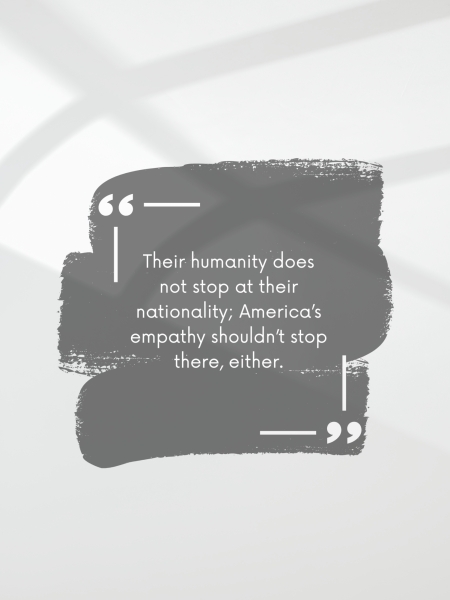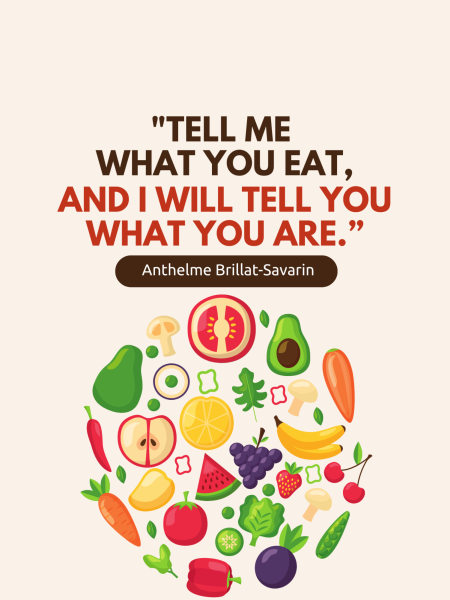Generation learns to disagree on social media
It was a Tuesday morning, and I made a quick post on social media expressing my opinion. By second period that school day, I had more than 20 notifications telling me that I was being petty, that I was attacking someone because I didn’t like them. The accusations devolved quickly into unrelated arguments about old fights, I felt that people were ganging up on me because my post was too direct. But they didn’t give me a chance to defend myself. Within minutes, people made up their minds.
This kind of experience is becoming all too common. With social media, people become quick to judge and point fingers.
An example showed up in the renewed discussion of gun rights in the wake of the Oct. 1 Las Vegas shooting. In recent weeks, on basically every social media outlet, one can see people posting opinions about gun rights. Many comments below those posts are arguments between the people who are pro-gun and others who are against guns. Much of the time the arguments devolve into personal attacks, which are not an effective way of communicating.
There are ways for people with differing points of view to have an effective discussion without insulting each other. According to Time.com, there are three ways to politely disagree:
• Beware the Amygdala hijack
• Approach differences with genuine curiosity
• Model clarity and courage
The Amygdala hijack has to do with part of the brain’s limbic system that can hijack the prefrontal cortex. When this happens it causes a fight-or-flight response, making a person unable to think clearly. When those feelings occur, it is smart to take a step back to calm down before continuing the discussion. When scared, people often say things they do not mean.
Approaching differences with genuine curiosity is something that I practice. Instead of coming into a conversation with my mind made up, I come in with an open mind and a willingness to listen. When approached that way an argument is more constructive because both people are there to learn from each other. I personally like to ask questions about why a person believes a certain way so that I can both learn and also have a better understanding about where they are coming from. By coming into a conversation without preconceptions, both people can communicate more effectively.
Lastly, model clarity and courage, “Call attention to acts of intolerance, both publicly and in your own daily life. Speak out against slurs and jokes that target groups of people. We should respect context and the past by researching and understanding our history of civil unrest,” says the recommendation at Time.com. It is smart to discuss current topics, especially tragedies, because it helps the nation grow and better understand both the cause and effect of an event. Sweeping things under the rug will not allow for positive growth and could cause larger problems. Respecting other, even with differences in opinions, is how growth of character occurs.
It appears that with the new age of technology. people understand less how to connect with each other — perhaps, because it is too easy now to communicate without thinking. With one click of a button a message is sent, a comment is made, or a picture is taken, and it can remove the value from everyday interactions.
It is almost too easy for someone to communicate. Gone are the days of physical mail, and no longer are meaningful messages written on paper, but more often on a smartphone screen. Yes, being able to quickly communicate with loved ones is important, especially with all of the disasters and terrorism occurring recently throughout the nation. But sometimes it is neither necessary nor constructive.
There are times when posting an opinion or an argument online is unnecessary, and even more so when commenters disrespect and personally attack each other. There are constructive ways of criticizing people, and this does not include saying, “Your opinion is wrong because I disagree with it.”
The funny thing is that opinions cannot be wrong. They reflect an individual’s views and values. One can disagree with them but they cannot be wrong.
Some people will never want to have a proper discussion or consider others’ views. Arguments such as those come up every day. If someone disagrees with a company or a news outlet they are quick to say, “I disagree with this and the page needs to be shut down,” which makes no sense. The First Amendment, freedom of speech, press, and assembly, was created for a good reason — so people can openly discuss issues without fear of being jailed. Yes, disagreement is good, but wanting to shut down a page or a person because of it does not make sense.
With these three tips in mind, people who respect each other and listen with open hearts and minds will be able to have more effective conversations than those who refuse to acknowledge or respect outside opinions. After all, each person is raised differently and has different thought processes. Every person has something to offer and ways to learn from others. The world needs more kindness.





